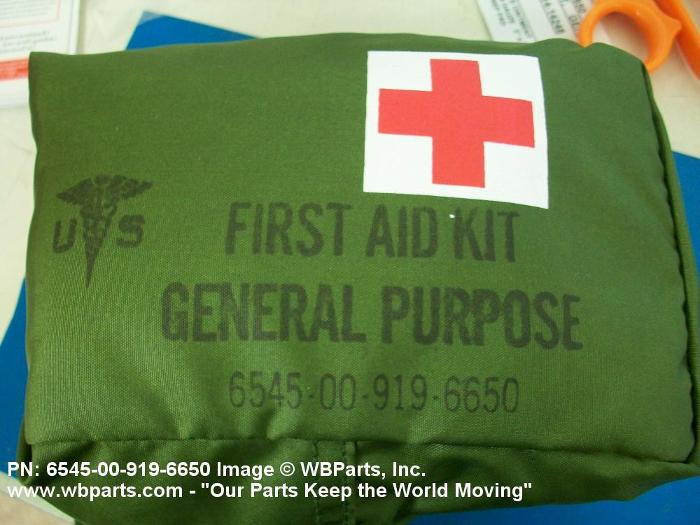Monday, September 25, 2017
Bandaging: Gather Supplies
Before you wrap anything, you've got to have something to bandage with.
What you have is entirely subjective. I've provided sample listings a time or three, for instance here, here, and here, which describe, respectively, a standard jump bag, a minimal pocketsize Everyday Carry Survival Kit, and a SHTF Apocalypse Trunk.
You can also get great ideas for kit lists to aim towards if you find the NSNs (National Stock Numbers) of various military kits, and then google them.
For example:
NSN 6545-00-919-6650 yields you the item packing contents for
this little cargo-pocket sized wonder, found snapped to the fuselage of countless US military aircraft.
The military is fanatical about lists and standardization. You should mine that knowledge.
Which one to use for your model?
I have no frickin' clue. Because I don't know how many of you there are, what your most-trained people (and least-trained common denominator people) can do, or how long or for what you're preparing to deal.
That's YOUR problem, and you'd better get on it if you haven't already.
Invest some thinking time (if necessary, keep a pad and pencil in the Porcelain-clad Thinking Room), and plan it out.
Once you do that, whether you're packing a pocket kit for a day hike, or the Medical Suite Of The Zombie Apocalypse, and gather your stuff, there's something else you need to do.
Get one (or some) of everything you're planning to use, designate it "Training Supplies", and make sure you and everyone capable of helping out takes it out and plays with it.
No $#!^, Sherlock.
And no excuses.
Military training is geared at around sixth-grade reading comprehension level.
(The actual Red Cross texts are probably closer to fourth grade, currently.)
So your wife, girlfriend, boyfriend, kids, or whoever else, can learn how to do this stuff ,if they don't put their shoes and socks on in that order.
And should. Basic first aid is an entry-level skill set for everyone in your family/team/tribe.
Do what you have to do, but the first one of everything should get cracked open, and you (plus whoever else) should practice playing with it.
If you can't afford a second (training) set of gear, you're failing to train, which is training to fail, when somebody - possibly you yourself - is spurting blood.
That's what the military refers to as a "non-starter."
Re-think that plan.
Take everything out and play with it (or else, find opportunities to do it for real a few hundred times). See how it's packed, how it opens, how it comes out, how it deploys, how it's supposed to work, and do it twenty or fifty times, until you could do it in the dark, with your eyes closed, by touch. Because in a power-failure after an earthquake or hurricane at 3AM, that may be exactly what you have to do.
Start in daylight, and learn what you're dealing with. Read the packaging instructions. Look at the diagrams. Watch the YouTube videos. Then carefully fold, roll, and re-pack it right back the way it came, and do it again. And again. And again.
Then have any others in your plans do the same thing too.
Because they may be putting it on you someday.
And I mean everything from band-aids to CAT-T tourniquets. I have watched doctors and nurses struggle with band-aids, and it's embarrassing, but it happens, because in years of training, they never paid attention to getting it right, or learning how stuff works well enough to master its use. Even in the medical biz. So FFS, don't be that person.
Gather up the toys you think you need, and a practice set.
And practice with the practice set, not until you get it right, but until you can't get it wrong.
The rule of thumb for our military's special operations forces is that they aren't superhuman;
they just rehearse the basics until they do it perfectly, every time.
It's no more complicated than that with anything.
Now get cracking.
Subscribe to:
Post Comments (Atom)


1 comment:
Good stuff.
I'm feeling guilty and will assuage that guilt by training Bride in the wonders of the Israeli Battle Dressing. We've played "tourniquet" but not nearly enough.
Suitably humbled and appropriately motivated...
Boat Guy
Post a Comment